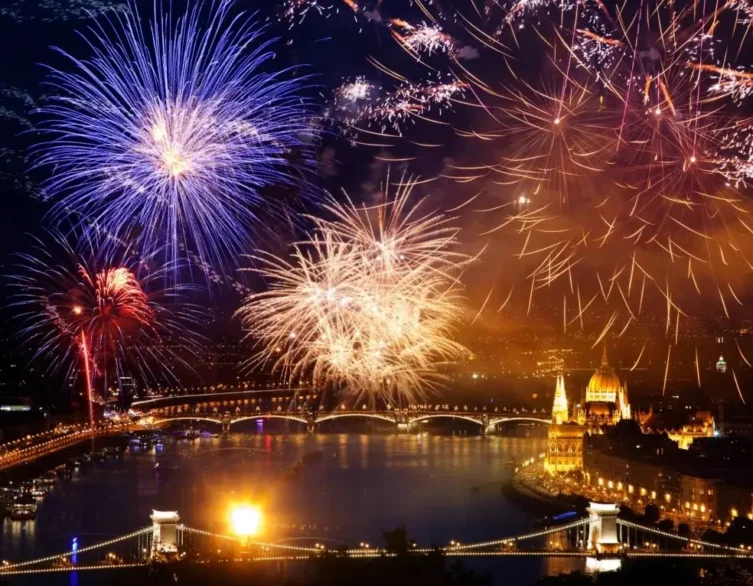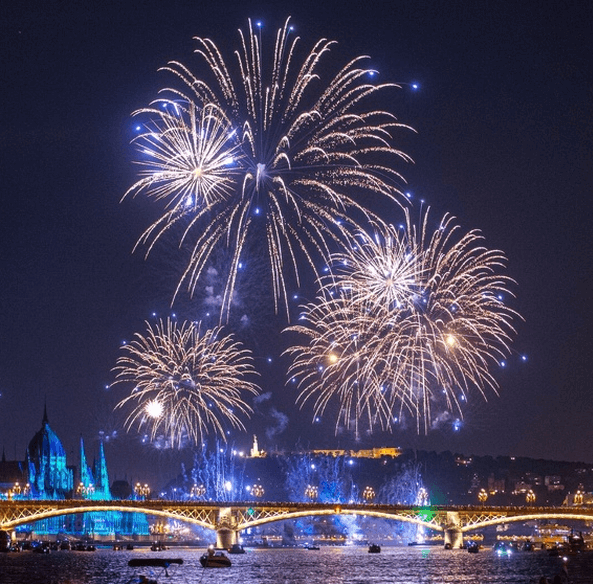Budapest’s New Year’s Eve Fireworks Get a Major Overhaul

Budapest has long been known for its spectacular New Year’s Eve parties, with fireworks lighting up the Danube and echoing across the Buda hills well past midnight. But this year, the capital is ringing in 2026 with a quieter, more eco-conscious celebration. Starting on December 15, 2025, a new city ordinance will drastically limit the use of fireworks across Budapest — making this the most significant change to the tradition in decades.
The Turning Point for Fireworks in the Capital
The decision came after years of debate and growing public discontent about the noise, pollution, and chaos caused by fireworks. The Budapest General Assembly, led by Mayor Gergely Karácsony and supported by András Béres of the Párbeszéd–Zöldek party, voted in favor of the new restrictions with 21 yes votes and 11 abstentions.
According to the revised rules, private individuals will only be allowed to use fireworks between 8:00 PM on December 31 and 2:00 AM on January 1 — a six-hour window that replaces the previous twelve-hour allowance. Outside this timeframe, any pyrotechnic activity will be punishable by significant fines, reaching up to 200,000 forints in some districts.
The change didn’t happen in a vacuum. In a survey conducted by the city earlier this year, nearly 10,000 residents voiced their opinions on the issue. An overwhelming 78 percent supported stricter rules, citing stress, sleep disruption, and health concerns. For many locals, what once symbolized joy had turned into an annual nightmare — especially for families with small children, elderly residents, and pet owners.
Best deals of Budapest
The Environmental and Health Argument
City officials also highlighted the environmental costs tied to holiday fireworks. Each year, an estimated eight tons of debris had to be cleaned from Budapest’s streets after the celebrations. Pollutants such as carbon dioxide, sulfur dioxide, and nitrogen oxides lingered in the air for days, worsening respiratory conditions and affecting those with heart problems.
By restricting fireworks, the city hopes to significantly reduce both air and noise pollution — and reclaim a more peaceful, family-friendly New Year’s atmosphere in the capital.
Where Fireworks Are Completely Banned
The new ordinance goes beyond time restrictions. It establishes protected zones where fireworks will be strictly prohibited even during the allowed hours. These areas include residential neighborhoods, parks, cemeteries, hospitals, and all Natura 2000 natural reserves within city limits.
In addition, highly protected zones — such as forests, urban green spaces, and wildlife habitats — will enforce a year-round ban on pyrotechnics. The restrictions will be closely monitored by district authorities and city inspectors to ensure compliance and safety for all.
What This Means for Tourists
If you’re planning to spend New Year’s Eve 2025 in Budapest, it’s essential to know that you won’t be able to set off fireworks in public spaces or near residential areas. However, the festive spirit of the city will still be alive and well.
Budapest’s iconic landmarks — including Heroes’ Square, Vörösmarty Square, and the banks of the Danube — are expected to host organized light shows and music events instead of traditional fireworks. The shift aligns with global trends toward sustainable celebrations seen in major cities such as Amsterdam and London.
Many bars, rooftop terraces, and party boats will host countdown events with panoramic views over the illuminated skyline. The atmosphere will remain vibrant, just a little quieter — and perhaps a little more eco-friendly.
Divided Opinions, United Goals
Naturally, the decision has divided opinions. Supporters call it a necessary move toward a cleaner and healthier city. They emphasize that the right to rest and a peaceful environment should outweigh the short-lived excitement of fireworks. Animal rights activists have also hailed the ban, noting that hundreds of dogs, cats, and birds suffer trauma each year during the celebrations.
Critics, on the other hand, fear that the new rules will strip away one of Budapest’s most cherished traditions. Some worry about the effectiveness of enforcement and whether smaller illegal fireworks might still disturb the night.
Yet the goal of the new regulation isn’t to ban festivities — it’s to reimagine them. Budapest is striving to strike a balance between celebration and sustainability, setting an example for other European capitals that face similar urban challenges.
A Different Kind of Celebration Awaits
New Year’s Eve 2025 will mark a turning point in how Budapest celebrates. The city that once glittered in bursts of color will now shine in new ways — through music, community gatherings, and cultural programs.
For visitors, it’s an invitation to experience a different side of the Hungarian capital: one that values calm, creativity, and care for the environment just as much as dazzling midnight skies.
Whether you’re clinking glasses on the Chain Bridge, joining a lively dance floor in the ruin bars of District VII, or watching the city lights reflect on the Danube, Budapest promises a memorable start to 2026 — just with a little less bang, and a lot more meaning.
Related news















